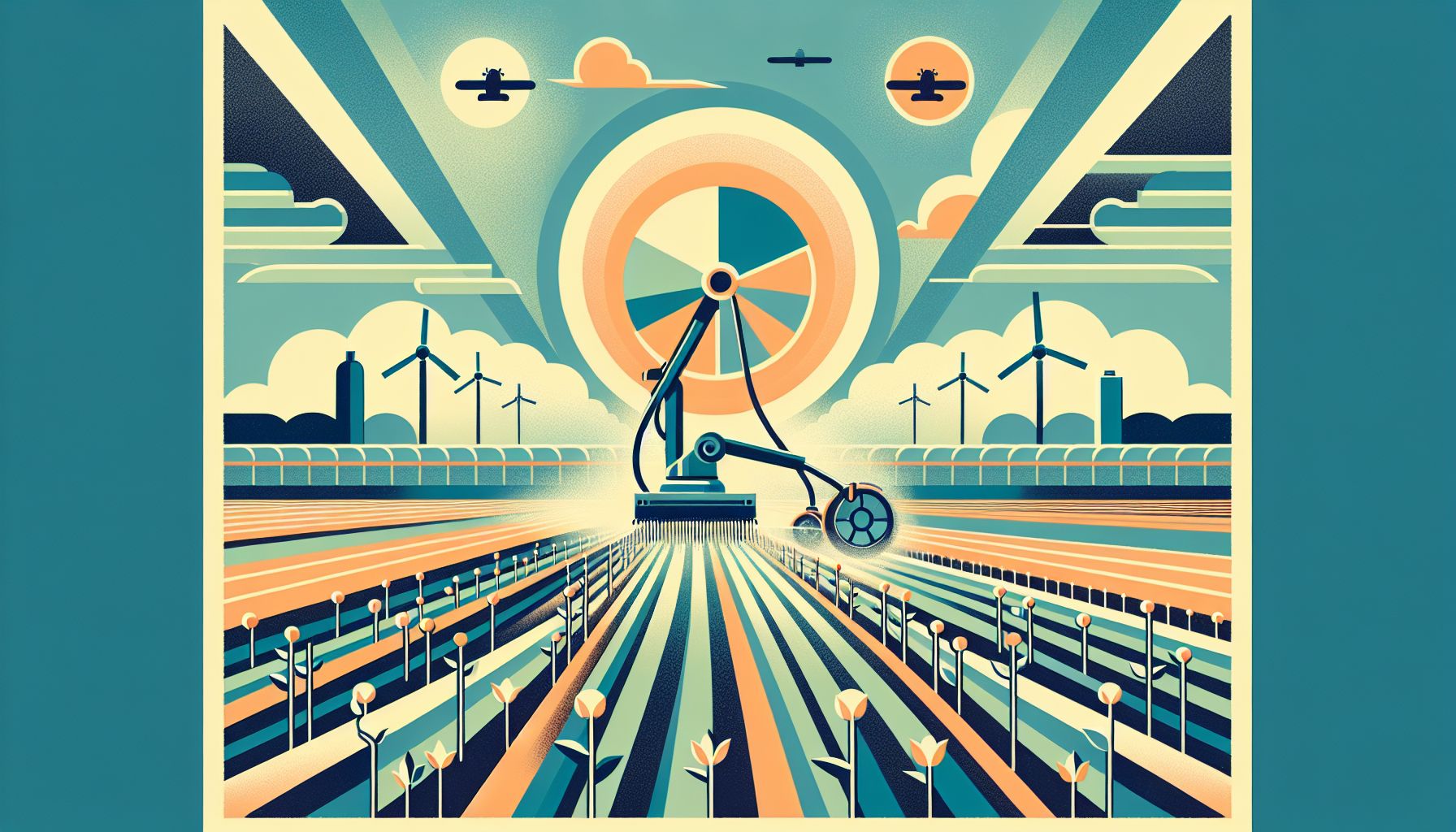Emerging Robotic Weeding Technology Signals a Greener Future for EU Agriculture

Dutch innovation in robotics aims to replace pesticides in agriculture with AI-driven ‘Weed Whacker’, fostering sustainability and EU regulatory compliance.
The Path to Pesticide-Free Farming
The Netherlands, known for its progressive agricultural practices, is once again at the forefront of a farming revolution. The introduction of Odd.Bot’s ‘Weed Whacker’ represents a significant step towards achieving the European Union’s ambitious goal to reduce chemical pesticide use by 50% by 2030. This robotic weeder, armed with artificial intelligence, has proven its mettle in recent tests with carrots, onions, and chicory, showcasing an unprecedented capacity to weed 0.8 acres per day, a task four times more efficient than manual labor[1].
Technological Symbiosis: AI and 5G
The marriage of AI with the speed and reliability of 5G connectivity has given birth to a new era of farming efficiency. The Weed Whacker utilizes this synergy to navigate fields, identify weeds with precision, and remove them without disrupting the surrounding flora or soil health. This reduces the need for human labor, particularly in organic farming, where manual weeding is predominant. Vodafone’s 5G technology not only accelerates the weeding process but also allows for remote operation, revolutionizing the traditional agricultural labor model[2].
Economic and Environmental Harmony
The economic impact of manual weeding, which can surge up to $2,500 per acre per growing season, is a significant burden for farmers. Odd.Bot’s solution not only alleviates this financial strain but also aligns with the EU’s upcoming regulations on chemical pesticides. The Weed Whacker’s introduction is timely, with expectations that by 2026, it will become an indispensable tool for farmers, particularly as the EU tightens its stance on herbicides[2]. The robot’s ability to operate both day and night further ensures continuous productivity without the environmental toll associated with traditional methods.
Sustainable Practices for Future Farming
The shift towards sustainable agriculture is not limited to weeding. Controlled Environment Agriculture (CEA) is another area where sustainability is taking root, with key practices such as energy efficiency, smart farming techniques, and the use of LED lighting to improve crop growth. These innovations, like the Weed Whacker, stand to play a crucial role in reducing the environmental damage traditionally associated with farming. By integrating multiple CEA systems, the Integrated System CEA (ISCEA) aims to further enhance efficiency and minimize ecological impacts, demonstrating a holistic approach to sustainable agriculture[3].
A Call to Action for Europe’s Farmers
With the EU’s focus on reducing emissions, enhancing soil and water conservation, and increasing carbon sequestration, European agricultural policy is increasingly emphasizing the adoption of sustainable practices. This includes organic farming, conservation methods, and advanced technologies such as precision farming. The success of initiatives like Odd.Bot’s Weed Whacker and the principles of CEA serve as a clarion call for farmers to embrace these eco-friendly and cost-effective practices, ensuring the longevity and health of both the industry and the environment[3].
Bronnen
- innovationorigins.com
- [](GPT: Based on provided source material)
- typeset.io

